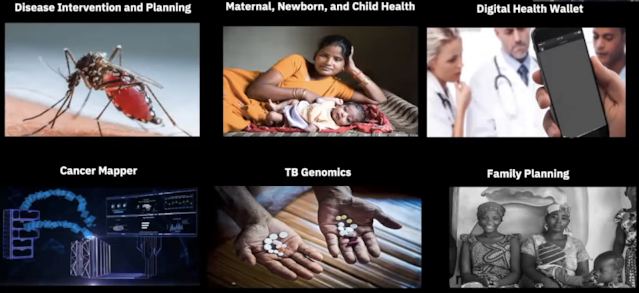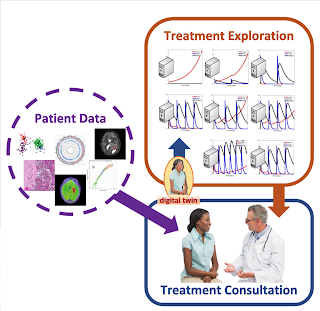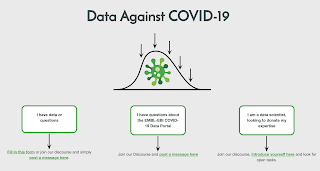DS-I Africa initiative brings together researchers, entrepreneurs, innovators and educators through a global virtual forum
"Rapid advances in data science coming from all over the globe and largely accessible to anybody with internet connection, are expected to be rather transforming and biomedical research..investing now, to develop data science expertise in Africa has the potential to pay really big dividends...We are all Africans. We know this is the cradle of humanity. This is where we all came from. Want to understand genomics, the best place to do that is in Africa" --- Keynote speech Dr. Francis Collins, Director, NIH.
 |
| Aisha Walcott-Bryant, IBM Research Africa, AI Innovations to Transform Healthcare in Africa |
From August 10, 2020 through August 19, 2020, the US National Institutes of Health hosted an online-only virtual symposium to communicate the key priorities of the new NIH common fund initiative - Harnessing Data Science for Health Discovery and Innovation in Africa (DS-I Africa). The virtual platform hosted by Know Innovation attracted over 1000 participants globally and provided a variety of interactive sessions including keynote videos with Q&A, live interactive panel discussions, networking with partners from academic, government, private sector and NGOs, and much more.
Funding opportunities. Calling it the venture space of NIH, Dr. Collins emphasized in his keynote address that now is a really good moment for Africa to invest in data science, given that this work can be done in a distributed fashion over the internet. Building on prior research programs like H3Africa, and H3ABioNet, as well as biomedical training programs such as Medical Education Partnership Initiative (MEPI) and Health-Professional Education Partnership Initiative (HEPI), the DS-I Africa initiative aims to to develop solutions to the continents most pressing health problems. DS-I Africa will accomplish these aims through four funding opportunities - 1. African hubs devoted to research on key health problems, 2. data science training programs to build capacity and expertise in data science, 3. supporting research to examine the ethical, legal and social implications (ELSI) particularly in the applications of artificial intelligence and machine learning to human medical issues, and 4. an open data science platform and a coordinating center as a resource to support this trans African health data science network. Key point to note here is that the grant applications for these funding opportunties must be led by an African institution of higher education or a not-for-profit organization.
Pan-African Data Science Programs and Partnerships. The optimism for harnessing data science was palpable even through the virtual symposium. A number of projects and programs were presented. I cite a few examples that I found interesting. A Uganda-based startup Matibabu is using the Yotta data science platform to create a visualize data from last mile clinics for rapid diagnostic testing for Malaria. This real time malaria surveillance is being used for policy decisions in malaria elimination programs. The platform allows the creation of insecticide resistance maps, visualize antimalarial drug efficacy to help Pharma companies better understand the performance of their drugs in various geographies. Driving change through evidence is a Pan African mandate for the African population and health research center based in Nairobi, Kenya. Working with UNICEF, Ministry of Health and local governments they are using a data-driven research approach to increase awareness in African women about the benefits of breastfeeding and early life nutrition. IBM Research, Africa is working with communities across the continent motivated by healthcare challenges and opportunities in Africa. Their data science toolkit includes the Digital Health Wallet for consenting and secure sharing of health data by patients and Cancer Mapper for tracking and quality assurance of usage of ICD codes in pathology reports.
Bringing data science together from academic, private and government sectors across Africa, DS-I Africa initiative hopes to take opportunities in front of us with accumulating health data as well as tools and technologies to mine them, and turn them into advances that will benefit humanity.
You can receive regular updates about the DS-I Africa initiative by signing up for the NIH mailing list here.



Comments
Post a Comment